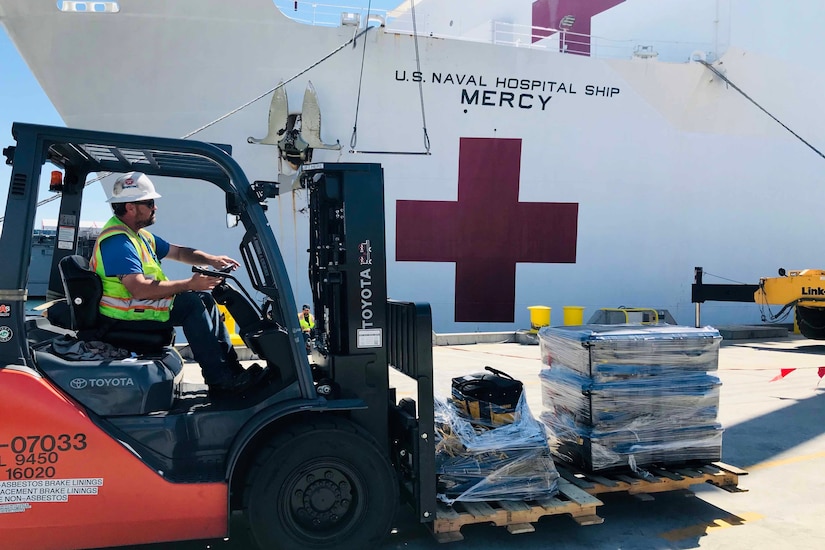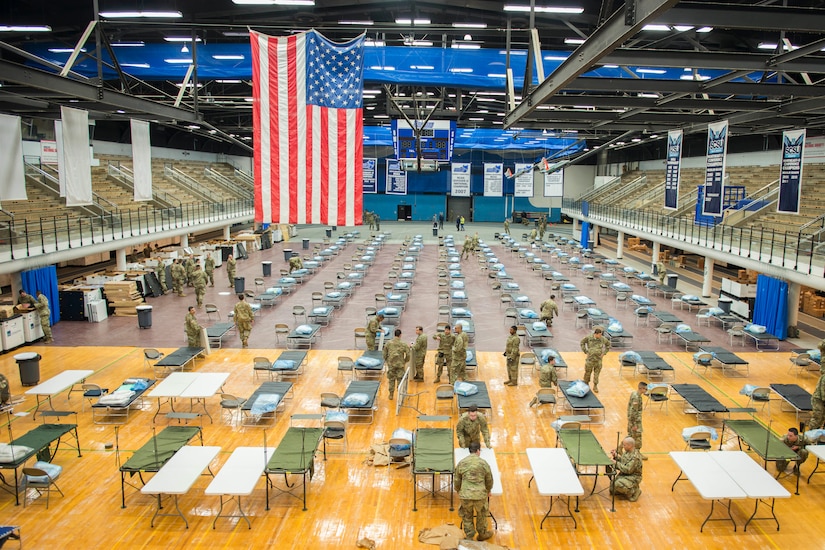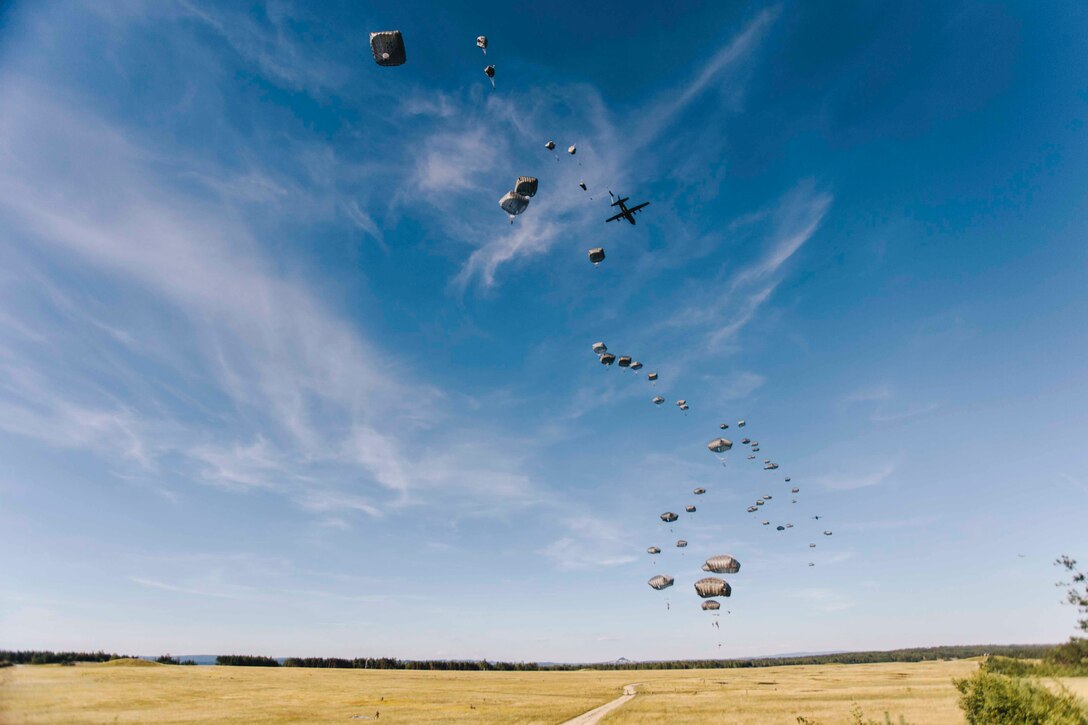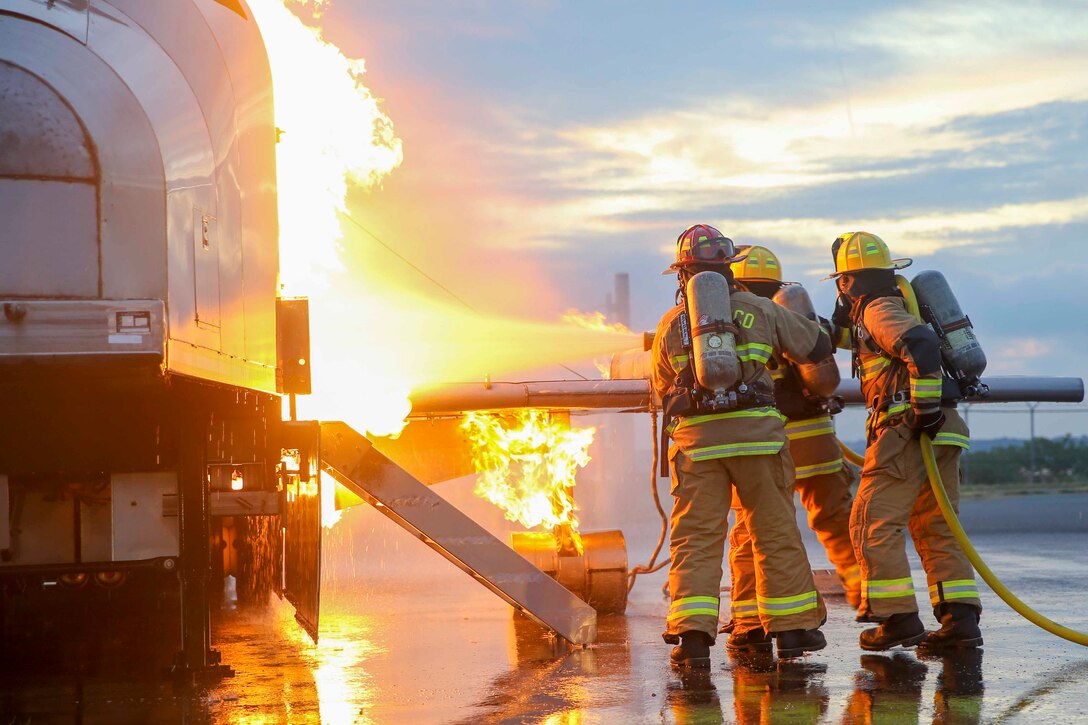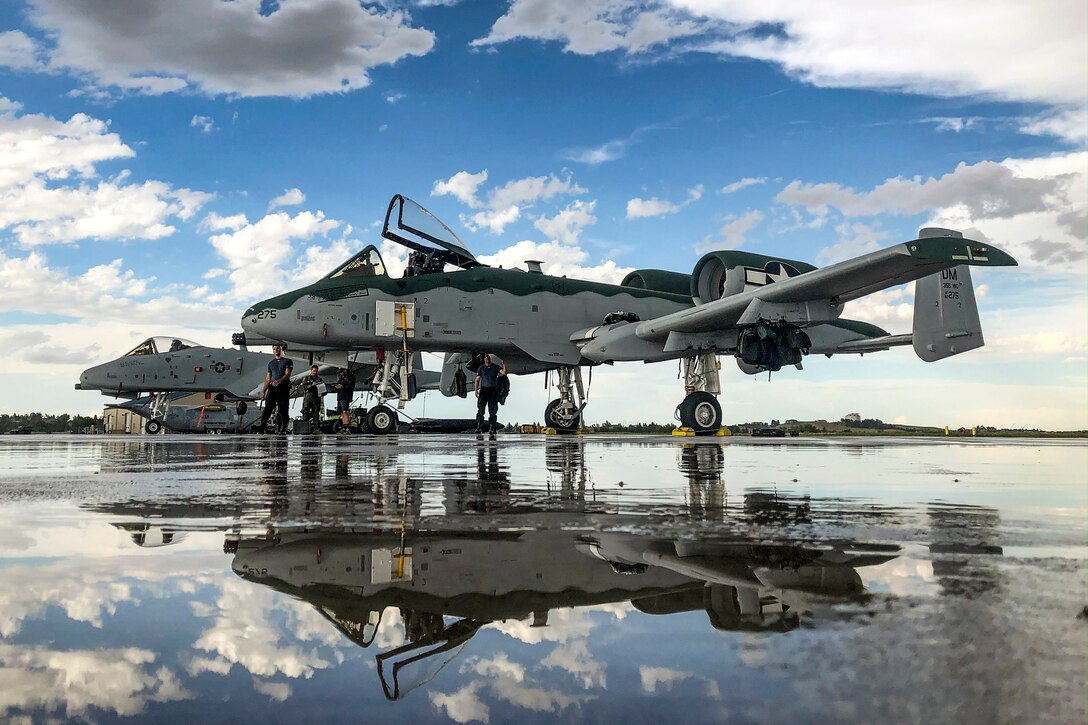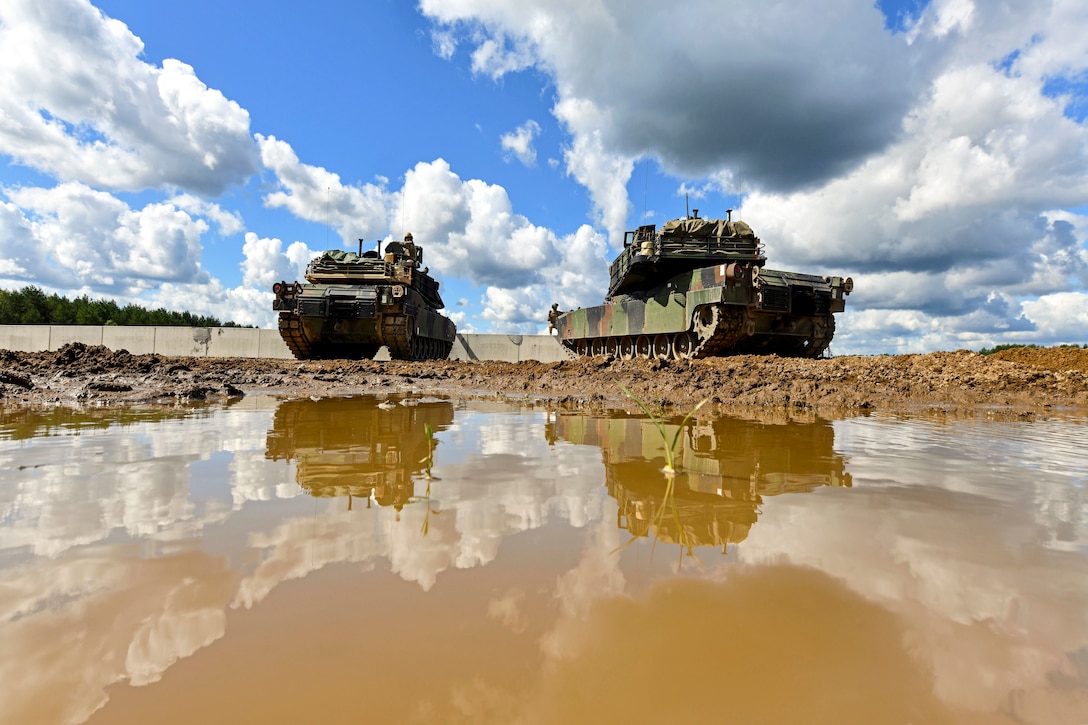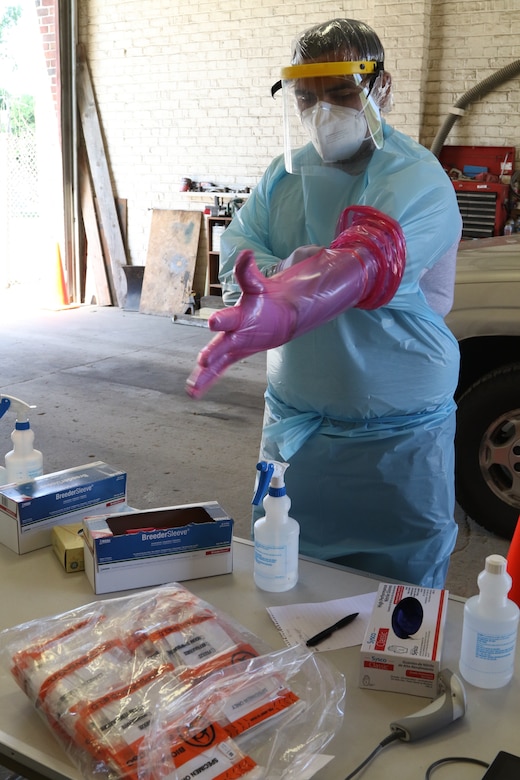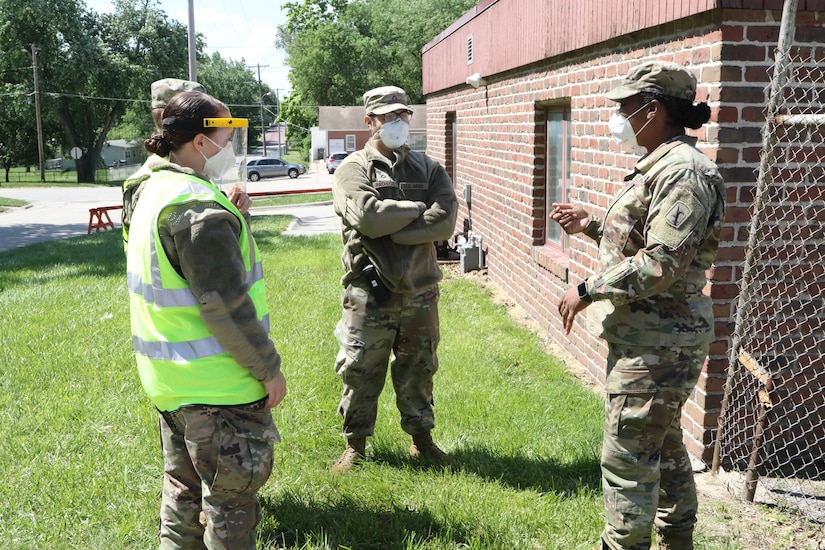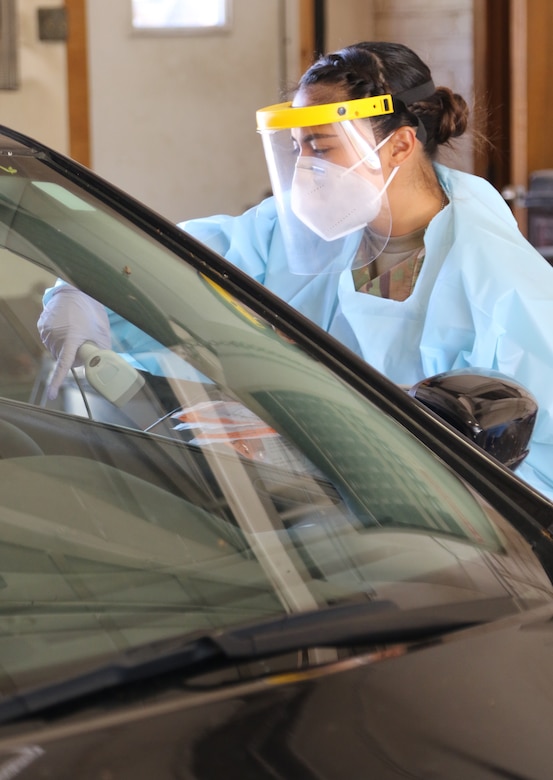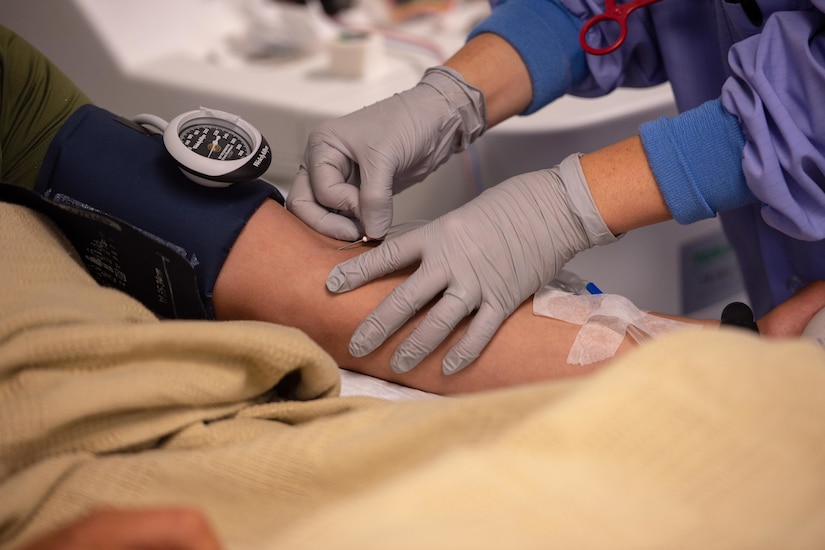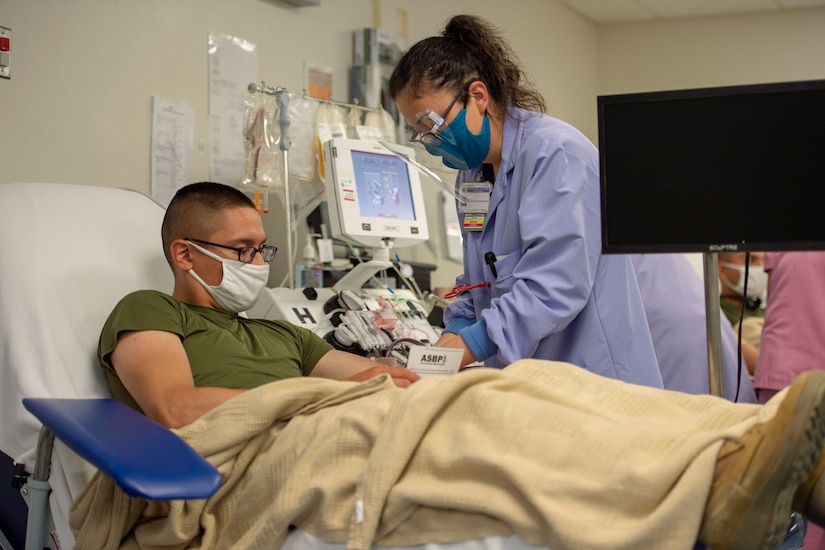July 23, 2020
|
BY C. Todd Lopez
, DOD News
Since the COVID-19 crisis first threatened the United
States earlier this year, the Defense Department has been at the
forefront of America's fight against the pandemic, said Defense
Secretary Dr. Mark T. Esper.
"We've been in it from day one, going back to late January, when I
started taking reports on COVID-19," said Esper, during a press briefing
yesterday at Whiteman Air Force Base, Missouri. "If you recall, way
back then, it was the Air Force. In fact, the Air Force Reserve, that
opened up a base in California in late January to bring American
citizens back from China to deal with it."
We've been ahead of the curve every step of the way. We will continue to be there."
Defense Secretary Dr. Mark T. Esper
Since that time, Esper said, the department has opened more bases to
take care of Americans who've been repatriated and taken to the streets
to bring assistance directly to citizens.
"At one point, well over 45,000 guardsmen [were] out distributing
supplies, setting up testing stations in nearly all 50 states and
territories," he said. "[It's] just a remarkable effort by the active
duty and mostly the Guard to do that. And now, of course, we're all in
with regard to Operation Warp Speed and driving toward a therapeutic and
a vaccine to get there."
America's soldiers, sailors, airmen and Marines, Esper said, continue
to stand ready to provide support to the people of the United States in
the fight against COVID-19.
"We've been there from day one. We've been ahead of the curve every step of the way. We will continue to be there," he said.
At Whiteman AFB, Esper also met with airmen and civilians to discuss
issues related to diversity and equality within the department —
something he said is critical to the department's strength.
Among the many issues discussed was finding ways to make the
promotion process blind to both gender and race to avoid gender and race
biases, he said.
"All those things we can do to get rid of things that might trigger
conscious, more importantly, unconscious bias, I want to do to move
forward," he said. "We need to be as meritocratic as possible in the
military. That's our commitment. The military is very diverse. That's a
strength of ours to be diverse. At the end of the day, it's all about
improving cohesion, morale and readiness. And the more that we can have a
diverse, inclusive force that everybody believes offers equal
opportunity, the stronger we will be in defense of the American people."
Whiteman AFB, about 60 miles outside Kansas City, is home to the B-2
Spirit bomber, a wing-shaped stealth aircraft that’s operated at the
installation by both the active duty 509th Bomb Wing and the Air
National Guard's 131st Bomb Wing.
At Whiteman, Esper said, he was impressed with the multi-component
cooperation he witnessed between the guard and active duty personnel to
carry out the mission.
"As some of you know, I served in both active duty and the ... Army
Guard," he said. "I've never seen integration like this. Its
hand-in-glove relationship is seamless, and I'm very impressed by what I
saw today. I've got to say the Air Force overall does this very well."
